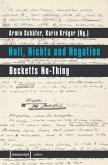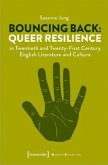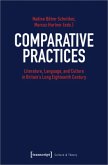In medieval and early modern times, female visionary writers used the mode of prophecy to voice their concerns and ideas, against the backdrop of cultural restrictions and negative stereotypes. In this book, Deborah Frick analyses medieval visionary writings by Julian of Norwich and Margery Kempe in comparison to seventeenth-century visionary writings by authors such as Anna Trapnel, Mary Carey, Anne Wentworth and Katherine Chidley, in order to investigate how these women authorised themselves in their writings and what topoi they use to find a voice and place of their own. This comparison, furthermore, and the strikingly similar topoi that are used by the female visionaries not only allows to question and examine topics such as authority, authorship, images of voice and body; it also breaks down preconceived and artificial boundaries and definitions.
Hinweis: Dieser Artikel kann nur an eine deutsche Lieferadresse ausgeliefert werden.
Hinweis: Dieser Artikel kann nur an eine deutsche Lieferadresse ausgeliefert werden.








